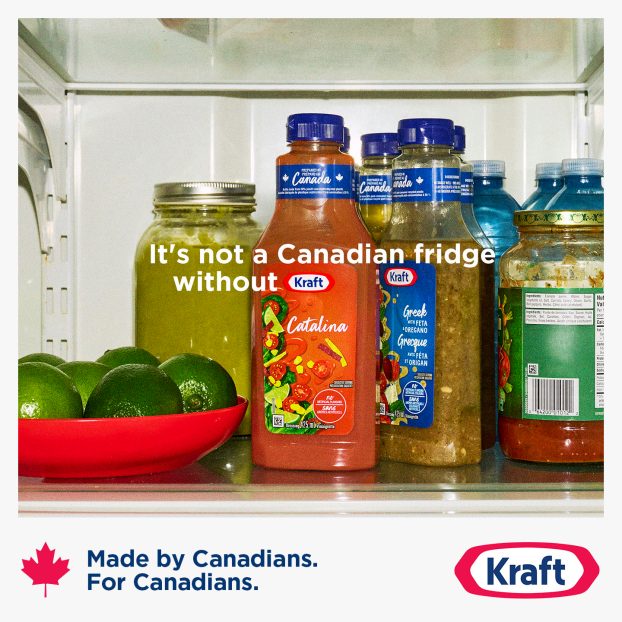Steve Jones suggests that as middlemen with restricted media buying budgets and quantitative mind-sets, ad agencies often fail to provide advertisers with an adequate understanding of the broadcast medium.
This problem is not confined to television. A case in point is the Toyota Canada account.
About six months ago at a Magazines Canada seminar, Ted Wallbridge, vice-president sales at Toyota, outlined some concerns he had about the value of magazine advertising.
Given his clout, I expected them to be redoubtable and pertinent. I found them to be neither.
In fact, they were voiced with such hostility that a reasoned response almost seems futile.
Perhaps, as Jones contends, this antagonism is, in part, a result of poor communication about the medium. Regardless of the origin, they should, however, not go unanswered.
Here, in his own words, are some of Wallbridge’s key concerns:
– Do not try to hustle me. Back up your claims with concrete examples and an action plan showing how you will support over and above a straight booking.
– Do not play numbers games with me. Numbers do not mean diddly if you are not serving my needs and those of my dealers.
– How does your publication serve its readers versus your main competition? How do you rank in terms of standard industry norms (target reach, efficiencies, competitive clutter)? Tell me what it is about your publication that makes it a ‘must read’ for the reader, and a ‘must buy’ for me.
– If you want to be a player at my table, you have to ante up – and impartial, syndicated media studies are part of the ante.
– You have got to get to know my business – it makes you more credible and shows me that you have done your homework. And do not be shy with my agency or marketing teams; ask the questions you need answered.
All of this advice, when stripped of its condescending tone, is quite appropriate for those embarking on a career in advertising sales.
It is, however, totally inappropriate in light of the fact that the Toyota account is enormously important to the magazine industry as a whole (fifth-largest advertiser: $6.6 million in 1992), and, as such, gets extensive attention from leading professionals representing Canada’s most formidable publications.
Here, nonetheless, are some direct answers to the above-mentioned concerns:
– Do not hustle me:
This concern is a non-starter. Magazines, and car dealerships, that ‘hustle’ clients do not generally stay in business long.
Given the success he has achieved, I would suspect that Wallbridge has not been hustled often.
His request for concrete examples of the power of magazines, on the other hand, is more substantive. There exist hundreds of success stories, many of which I assume have been presented to Wallbridge.
But, in case none of them made an impact, he may wish to talk to his colleague, Wayne Jefferey, general manager of Lexus, who recently stated that magazines are the ‘best and most important medium’ for telling his story.
And that as a result of his campaign, ‘Sales of the SC 400 doubled objectives and would have exceeded 800, if there had been adequate supply.’ I also refer him to ‘Magazines Sell,’ a piece recently produced by Magazines Canada.
– Do not play numbers games with me:
This concern is simply a repetition of the previously addressed ‘hustle’ accusation.
-How does your publication serve its readers/if you want to be a player at my table:
Positioning a publication against its competition and tanking it against industry norms depends upon impartial numbers.
How does the magazine industry ante up? With one of the best pieces of media research available anywhere: the annual Print Measurement Bureau study.
It provides detailed information on the reader of specific consumer and business publications, their exposure to other media, ownership of consumer durables, use of products, brands and services and their habits and lifestyles.
The Audit Bureau of Circulations and the Canadian Circulations Audit Bureau provide detailed verification of circulation numbers.
Successful publications that choose not to belong to these organizations rely upon independently conducted readership surveys to deliver information to their advertisers.
As for value-added action plans, magazines offer a range of prestigious, personalized delivery services that are limited only by the imagination.
With ink-jet technology, poly-bags, and psychographic readership data, magazines can target and influence audiences like never before.
Why all the sound and fury from Wallbridge?
I can only surmise that it arises from personal experience, and a lack of direct, ongoing contact with magazines.
Specifically, during his talk, he referred to an incident several years ago in which he made an ’11th hour’ attempt to pull out of a print ad campaign. Most magazines involved apparently refused his request.
Hence, he accuses all those in publishing of lacking respect for, and an understanding of, his business and their ‘partnership’ with it.
It is ironic that these charges are made, when you consider the similarities (the importance of scheduling and deliveries, for instance) that exist between the automotive and publishing industries.
Unlike tv and radio, the sole intent of most magazines is not to deliver audiences to advertisers. Successful publications put their readers first. Only in this manner can they hope to provide the kind of powerful editorial environments that render advertisements effective.
In an industry in which scheduling is everything, last-minute changes can be costly and time-consuming. They are harmful to the reader and other advertisers, and, as such, are rightfully undertaken with extreme reluctance.
Well-educated Canadians get most of their buying information from the print media. Much more than other mediums, magazines educate, stimulate and engage their audiences. Readers pay for most publications to enter their homes. Magazines do not intrude on life, they enhance it.
Similarly, magazine advertisements are not irritants. They are space-bound, not time-bound. They do not interrupt. In fact, they can be seen positively – if magazines are like companions, then ads can be seen as friends of a friend – they are supporting, in a subtle way, publications from which readers get hours of enjoyment.
Despite questioning his approach, I think that Wallbridge, by airing his concerns and stimulating debate, has performed a valuable service.
It is incumbent upon the magazine industry (and its competitors) to do a better job promoting the effectiveness of its medium.
Steve Jones, in questioning the status quo, highlights one of the most difficult challenges: how to educate advertisers without alienating their agencies.
Nigel Beale is president of Nigel Beale Media, publishing consultant, and operates the Ottawa offices of News Canada, a news distribution service.























